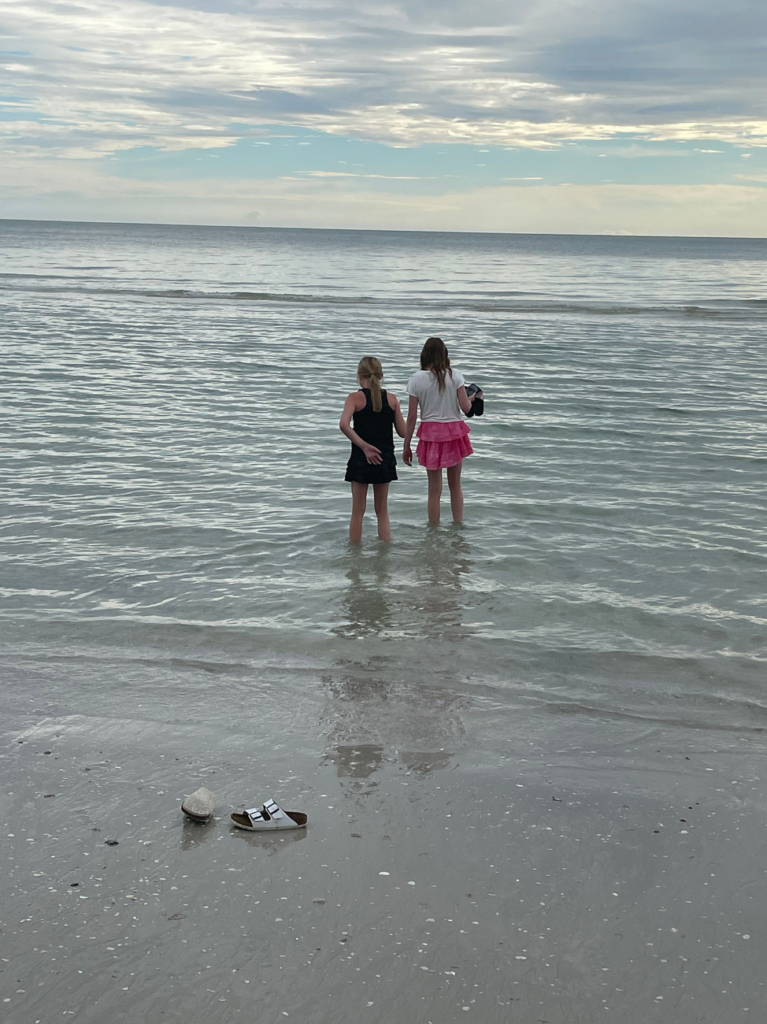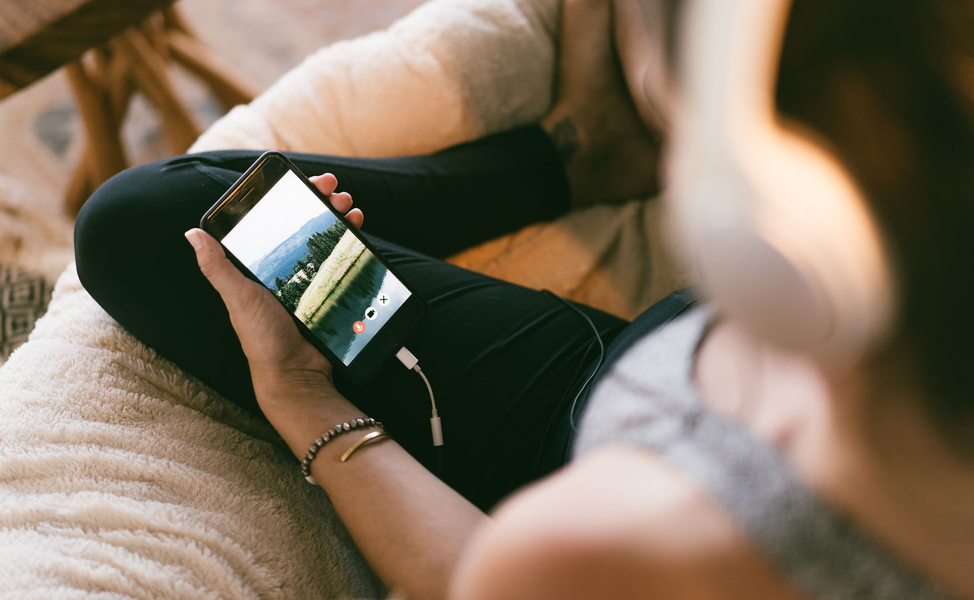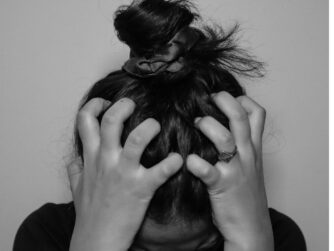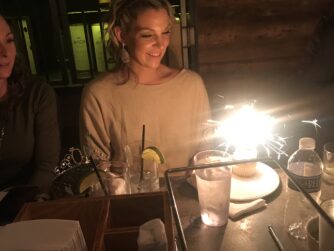What I Learned From Not Having A Phone For 78 Hours.
We are attached to our devices. Our phones, tablets, computers, internet, etc. This is well known.
About 2 billion people use their cell phones across the globe, with more than half the population in developed countries relying on them daily. In fact, according to research by psychologists, we spend on average about five hours each a day doing so, turning it on, swiping, and scrolling as many as 85 times a day. But what would happen if you were without if for a few days, even a week?
The unimaginable happened to me this past winter. My phone got frozen on the apple logo on my iPhone. After hours of googling on my desktop how to reboot it I knew it was done. It was a Sunday and the stores already closed by the time I gave up that it was broke.
First thoughts….. EVERYTHING IS ON THIS PHONE! I had weeks worth of Instagram posts and reels saved in drafts for my work account. In my notes are my work ideas, rough drafts, login info to EVERYTHING, all my pictures, all my saved texts. It brought anxiety, how will the kids school get a hold of me if something happened. How will anyone get a hold of me if an emergency happens. Was anyone getting irritated by my lack of reply to their texts? Plus, how would my kids get a hold of me if they need me. ( ok I have a desk top and people can email me.) I didn’t know any login info for Facebook and Instagram so I couldn’t sign in and decided to take a break anyways because it causes me so much anxiety with the negativity and judgments that I have been seeing lately. After my initial frustration. I took the opportunity to not worry about posting anything to my social media accounts.
Minor tasks seemed impossibly difficult without a phone. How do you shop without a grocery app or order food without Uber Eats? How do you calculate and help your youngest with math homework?
First-world, middle-class American problems here, I know, but the first day without a phone was hard. By the next day, the world was still standing and I was finally convinced that a person could function without a phone and social media.

Being without a phone made me realize I hate being accessible all the time. It’s nice not having a phone. My days were spent in blissful ignorance just working; no texts, no constantly checking emails when I was away from my desk and computer.
My kids had to be responsible on their own, of which it turns out they are capable. If they forgot something they could not text me. I didn’t have a constant barrage of, “Mom, can I … ?” or “Where are you?” or “Can you buy me this?” I wasn’t on group texts going back and forth and no scrolling Instagram.
When your phone is on, you’re on
Cell phones aren’t just for communication, they’re productivity tools. It means you can/should get more stuff done in more hours of the day. The problem is, there’s always something that needs to get done.
Without a phone, it means you can’t. You can’t reply to an email while you’re in line at the grocery store. You can’t answer a quick question from your coworker via text. You can’t shop or manage your social media account while you’re waiting at the doctor’s office.
A love/hate relationship
I often use social media on my phone. But I didn’t miss it at all. What I did miss with my phone was having a camera and place to take notes. And there are conveniences to having a clock, calendar, weather forecast, at your fingertips. But it turns out they still make old-fashioned notebooks, clocks, and calendars.
But in all the time without my phone I learned a few things:
- Are you truly present with your family? I don’t think I was. I know even if I wasn’t on my phone it was by me and I would glance at it when someone was talking to me.
- It was sooooo refreshing not being on social media.
- No-one really calls or texts you haha. And if I went missing nobody but my parents would probably even realize. Even not texting, and not posting on social media for over a week no one noticed I was MIA.
- Your Instagram will survive when you take a break. You will not lose followers.
- I was so present these past few days. I was able to clean more, listen to more podcasts, meditate longer, talk to each kid one on one and really hangout, watch TV and movies and just really felt present and blessed!
Two huge observations while being phone free and social media free. We live in an “urgency culture” people expect us to respond and get back to them ASAP and we feel like we have to respond ASAP; second we are addicted to social media whether you believe it or not. “Whenever someone likes a post or reposts it, it stimulates dopamine, the reward centre of your brain. It’s the same part of the brain that’s stimulated by smoking or recreational drugs,” says Dr Irshaad Ebrahim, consultant neuropsychiatrist and medical director at the London Sleep Centre.
- Being contactless is great. It sounds so trivial but simple things like walking the dog without getting a work call is very restful. A break from the constant contact is good for most people’s wellbeing, and especially when it comes to social media. On social media we’re constantly bombarded with people sharing news about their job, relationships, vacations, presented in the best possible light, their high light reels. Seeing only the best aspects of other people’s lives could lower self-esteem.
- Very few things are urgent
- I’m spending less. I am not online shopping, or using Instacart or Uber Eats
- I do too much cognitive off-loading. I realized how Google dependent I am. According to a recent study, this may be affecting my thought processes for problem solving, recall and learning. Researchers at the University of California, Santa Cruz and University of Illinois, Urbana Champaign have found that ‘cognitive offloading’, or as they describe it the tendency to rely on things like the internet as an aide-memoire, increases after each use. In other words, the more we reach for our cell phones to tell us the answer, the more likely we are to do it again the next time. In effect, we’re using the devices as extra memory, instead of retaining information ourselves, says Dr Lee Hadlington, cyber psychologist at De Montfort University. “When you use your phone to do anything from navigating to storing passwords for you, you’re transferring that information over, instead of keeping it in your own memory. We are remembering the way to get information not the information itself.”

Moving forward
I wish I could say everything changed when I finally got a new phone at the end of the that week. But it didn’t. I’ve lapsed on almost every new habit I tried to establish following the experience.
You can say that you won’t use your phone unless it’s important, but everything seems important when you have a cell phone. Phones make us feel safe, connected, on top of things. It took a week without one to convince me they also add to anxiety and unhappiness.
But I am trying to figure out a healthy way of connecting with my online community, yoga and fitness students, and my clients. It is hard when you have an online business and Instagram is your way of doing business and promoting your biz.
There are a lot of mental health issues attached to social media too and I want to try and navigate it with not only myself but my daughters too, it is a sensory overload to our nervous system, feeling of not being good enough, feeling of being judged, and comparing ourselves to others.
As the summer months are winding down try to stay present, enjoy your family time, make time for friends and family, enjoy the outside and nature, put your phone away when you are with your kids and others, make those around you feel worthy of your time and attention by setting your phone down.
Join me in spending just an hour or two every night the rest of July with your cell phone on airplane mode. If you go to dinner leave your phone at home, in your handbag, or car.








I well remember the first time I saw someone talking on a cell phone in public. I was shopping at Mervyns, and I distinctly recall my first thought. It was, “Wow. I would hate to be bothered by a phone call while I am shopping! I’m so glad I don’t have one of those.” 😊